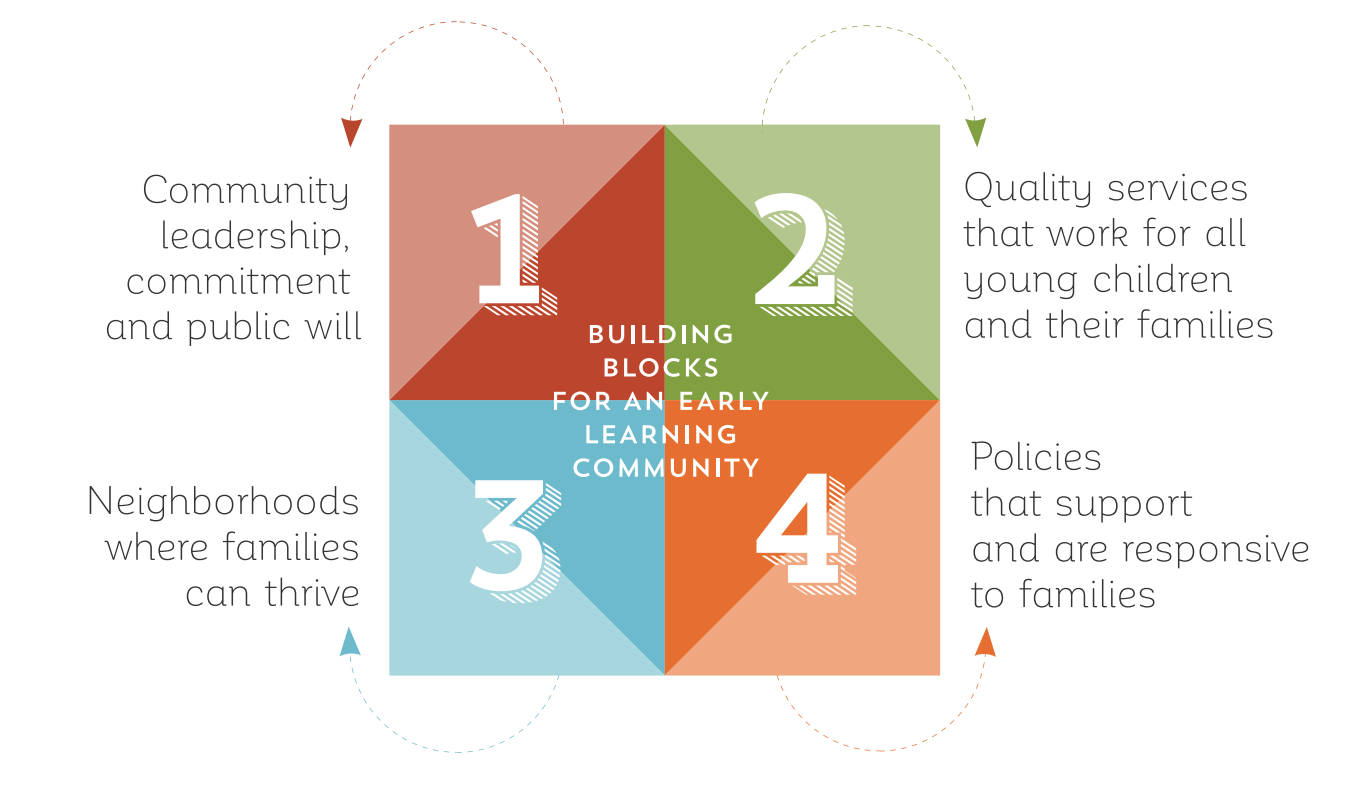
Screen shot: National League of Cities
How can a city or town become an Early Learning Community?
The National League of Cities has some good answers — as well as a new initiative to expand early education that six cities will be able to join (read more about this below).
Earlier this year, the league and the Center for the Study of Social Policy released the “Early Learning Community Action Guide.â€
“The goal of an Early Learning Community,†according to a league information sheet, “is to ensure that all young children get a great start, setting the foundations for life-long success and well-being.â€
Given that roughly 4 million babies are born in the United States each year, there’s a lot of work to do.
Communities seek results in three categories:
• protecting the health of pregnant women and young children
• preparing young children to succeed in school, and
• ensuring that children “live in safe, stable, and nurturing families and communitiesâ€
To do this work, communities need four building blocks:
- “Community leadership, commitment and public will to make early childhood a priorityâ€
- “Quality services that work for all young children and their familiesâ€
- “Neighborhoods where families can thrive,†and
- “Policies that support and are responsive to familiesâ€
And as the guide itself says:
“Throughout your journey to becoming an Early Learning Community, no matter where you are or what action steps you choose to take, you will need to consider how to:
• advance equity
• promote partnerships with families
• determine whether you are achieving resultsâ€
Communities can assess their work by using the Early Learning Community Progress Rating Tool. This tool asks communities whether they have engaged in an extensive list of actions in each of the four building block topics, including:
• “Ensure that elected officials and other high-level city and county staff understand and talk about the importance of early childhood in speaking engagements both with community members and with other stakeholders such as business leaders and agency heads.â€
• “Host ‘film nights’ with documentaries and films related to early childhood to spark conversation.â€
• “Conduct listening sessions with early care and education providers to determine their needs for additional support for themselves or for the families they serve.â€
• “Use public-private partnerships to expand access to the Internet in public spaces through broadband services or citywide Wi-Fi, or through public institutions like libraries and community centers.â€
• “Create a municipal-level office that is charged with promoting the well-being of families with young childâ€
 The league is also inviting cities to apply to join a new, 18-month initiative to expand early learning action on the city level, called City Leadership for Building an Early Learning Nation.
Cities that are selected for the initiative will be able to access the league’s expertise on expanding early childhood activities, develop strategic plans, connect to national early childhood experts, and share their efforts in league publications and at league conferences.
The deadline to apply is Monday, November 19, 2018.
The league strongly encourages “city staff who are committed to advancing an early childhood agenda in their communities to apply. While the team leader should work within in city government, we expect team leaders to work closely with diverse stakeholders across the city and develop a core team that involves community stakeholders.â€
The time to act is now. As the league says:
“Leaders in city government are uniquely positioned to implement strategies that promote young children’s learning, growth, and development. Investing in young children is critical to building a prepared workforce and an economically strong city.â€
“We invite you to join us.â€
